Trump Administration's Reversal on China Chip Ban Sparks Bipartisan Backlash
3 Sources
3 Sources
[1]
Trump's retreat on China chip ban triggers policy spat
Democratic lawmakers expressed "grave concern" to Commerce Secretary Howard Lutnick after the administration approved Nvidia's exporting chips to China, loosening controls imposed on national security grounds. Democratic lawmakers took Commerce Secretary Howard Lutnick and his team to task for "the administration's abrupt and inexplicable decision to reverse course and allow the sale of certain advanced semiconductors" to China, reflecting concerns within both parties that the administration's concessions in trade talks could have longer-term security ramifications. The criticism was conveyed in letters sent to Lutnick on Sunday night and Monday morning. U.S. and Chinese officials are meeting in Stockholm this week for another round of trade talks amid indications that pro-business Silicon Valley voices are winning out over security hawks in steering the Trump administration's China policy. The focus of the controversy is the administration's announcement earlier this month that it will loosen export controls on Nvidia's H20 AI chips, curbs that the Commerce Department had imposed in April to safeguard "national and economic security." Explaining the shift earlier this month, Lutnick said the administration now believed it was preferable to keep China "addicted" to buying U.S. technology. The reversal has hit hard among security hawks, who say the Trump administration has crossed a line by indicating that security issues may be tradable in trade negotiations. In a letter to Lutnick sent late Sunday, reviewed by The Washington Post, Reps. Raja Krishnamoorthi (D-Illinois) of the House Select Committee on the Strategic Competition Between the United States and the Chinese Communist Party and Gregory W. Meeks (D-New York) of the House Foreign Affairs Committee wrote that they had "grave concern" over the administration using the chip export controls as a "bargaining chip." "The President has signaled to Beijing and every other nation he is negotiating with that this Administration is willing to sacrifice U.S. national and economic security for illusory advantage in tariff talks," the letter said. The letter noted that Commerce Undersecretary Jeffrey Kessler had denied to the House Foreign Affairs Committee on June 12 that any export controls had been imposed as leverage in the trade talks. Later statements by Lutnick and Treasury Secretary Scott Bessent contradicted Kessler, the letter said, reflecting that the administration "has repeatedly misled the American people." Five Democratic senators sent Lutnick a second letter Monday morning, calling on him to "swiftly reverse course on these ill-advised actions." The letter was signed by Sens. Mark R. Warner (Virginia), vice chairman of the Senate Intelligence Committee; Charles E. Schumer (New York), Senate minority leader; Jack Reed (Rhode Island), ranking Democrat on the Senate Armed Services Committee; Chris Coons (Delaware), ranking Democrat on the Senate appropriations subcommittee on defense; and Elizabeth Warren (Massachusetts), ranking Democrat on the Senate Banking Committee. "We shouldn't be trading away key technological advantages as if they are concessions in a trade negotiation," the letter said. The White House, Commerce Department and Nvidia did not immediately respond to requests for comment. Bessent told Bloomberg that the resumption of H20 sales was "all part of a mosaic," while Lutnick told CNBC that the administration informed China it was loosening the H20 restrictions during negotiations for China to resume sale of rare-earth magnets, a crucial industrial input, to U.S. companies. "We held it up, and then, in the magnets deal with the Chinese, we told them that we would start to resell them," Lutnick said. Meghan Harris, a former National Security Council official during Trump's first term, said the H20 move had "stunned" both Republicans and Democrats working on export controls. "Now any subsequent export control action is really put into question as to why we've made that action, and whether we are willing to revoke that if we get the right deal," she said. The U.S. policy to throttle China's access to purchasing U.S. computing chips on national security grounds had already faced skepticism abroad. Some foreign officials have seen it at least partly driven by U.S. industrial policy meant to advance American commercial interests rather than purely security considerations. The Nvidia reversal has also been divisive within the administration, even as few Republicans have publicly criticized it. An exception was Rep. John Moolenaar (R-Michigan), chairman of the House Select Committee on China, who wrote a measured letter to Lutnick earlier this month. Moolenaar wrote that Nvidia H20 chips had helped China's DeepSeek artificial intelligence company develop its technology, and requested a briefing on risk mitigation from the Commerce Department by Aug. 8. One administration official, speaking on the condition of anonymity to discuss policy details, said that there was a deep divide within the administration over how to best meet the technological competition with China, but that the Silicon Valley camp, led by White House AI czar David Sacks, appeared to have gained the upper hand over security hawks. Another administration official, speaking similarly on the condition of anonymity, said that Trump was at a moment where he wanted "strategic stability" in the relationship with China, and that companies like Nvidia were all clamoring to be part of it. "Jensen repeatedly argued selling H20s would improve bilateral relations," the official said, of Nvidia CEO Jensen Huang. The official added: "There are 100 CEOs who said exactly what Jensen said and have all lost their China bet." The Nvidia policy shift was in some ways reminiscent of Trump's first term, when he imposed, then lifted, export controls on the Chinese telecommunications gear giant ZTE. While that move was also widely viewed as a concession to Beijing with uncertain security ramifications, U.S. officials did not explicitly link it to trade talks at the time. Foreign policy scholars say Trump appears to be more focused on striking deals in his second term. Stephen Ezell, vice president at the Information Technology and Innovation Foundation, called it "a more pragmatic, transactional approach." Kyle Chan, a postdoctoral researcher at Princeton University studying U.S.-China competition, said the first Trump administration seemed more focused on limiting aspects of China's tech development, while his second administration was treating these policies more like leverage. "Trump in 2025 seems to be making changes to China policy that Trump in 2018 would have criticized strongly," he said.
[2]
Trump faces growing pushback over China chip reversal
'I Think The Trade Deals Are Working Out Very Well': Trump Holds Gaggle On Air Force 1 | NEWSNATION President Trump is facing growing pushback on multiple fronts over his administration's decision to allow Nvidia to sell its H20 chips to China, a move that critics argue could give Beijing a leg up in the race to develop artificial intelligence (AI). A group of former national security officials and tech policy advocates called on Commerce Secretary Howard Lutnick to reverse course in a letter Monday, as several Democrats and at least one key Republican voiced concerns over the decision. "[W]e believe this move represents a strategic misstep that endangers the United States' economic and military edge in artificial intelligence (AI) -- an area increasingly seen as decisive in 21st-century global leadership," the letter reads. The Trump administration initially restricted sales of Nvidia's H20 chips to China in May, but the chipmaker announced earlier this month that it was taking steps to sell the chips again after receiving assurances from the government that its licenses would be granted. Lutnick indicated the decision was part of a broader rare earth deal with Beijing, while arguing that they were only receiving Nvidia's "fourth best" chip. However, this has done little to assuage concerns. Monday's letter argued the H20 is not an outdated chip and can still accelerate China's AI capabilities, while limiting the number of chips available to the U.S. It also suggested the move would likely weaken the effectiveness of export controls and encourage Bejing to seek more concessions from Washington. Reps. Raja Krishnamoorthi (D-Ill.), the top Democrat on the House Select Committee on the Chinese Communist Party, and Gregory Meeks (D-N.Y.), the top Democrat on the House Foreign Affairs Committee, similarly expressed concerns Sunday that the administration is using export controls as a "bargaining chip." "This approach risks eroding the credibility of our export controls regime, blurs the line between economic and security priorities, and sends a dangerous signal that critical guardrails are up for negotiation," the lawmakers wrote in a letter to Lutnick. The two Democrats suggested they "no longer have confidence" the administration is following the "rigorous, evidence-based interagency process" required to determine export controls under the law. "It is clear that this Administration is gambling with our national security and our economy all for the sake of President Trump's trade war that is harming American families, workers, and consumers," they added. Their letter was followed up by another from Senate Democrats, including Senate Minority Leader Chuck Schumer (N.Y.) and Sens. Mark Warner (Va.), Jack Reed (R.I.), Elizabeth Warren (Mass.) and Chris Coons (Del.). They argued the decision to allow for H20 sales to China undermines the Trump administration's AI Action Plan unveiled last week, which focused heavily on winning the AI race with China. "Remarkably, the administration's own AI Action Plan may in fact exacerbate the harm of rescinding these controls," the senators wrote in Monday's letter. "[B]y aggressively endorsing proliferation of powerful open weight models from U.S. firms, while simultaneously giving PRC firms access to leading-edge chips to finetune those models and deploy them to millions of global users on H20-enabled PRC cloud infrastructure, the administration has in effect reduced two key barriers to PRC efforts to challenge U.S. AI leadership," they added. At least one key Republican has also spoken out about the decision -- Rep. John Moolenaar (R-Mich.), chair of the House Select Committee on the Chinese Communist Party. He warned in a letter to Lutnick earlier this month that allowing H20s into China could boost their AI capabilities and urged the Commerce Department to limit export controls to a "slight technical improvement" on Beijing's current capabilities. Trump's chip policy is also facing scrutiny in other respects. After rescinding former President Biden's AI diffusion rule in May, Trump has yet to introduce a replacement framework. The diffusion rule placed curbs on chip sales to most countries around the world other than a select few U.S. allies. Several House Republicans led by Rep. Mark Alford (R-Mo.) urged the Trump administration in letter earlier this month to provide a "stable exporting structure" to replace the rule. Trump touted his decision to walk back the diffusion rule last week as part of his AI Action Plan's focus on exporting U.S. technology abroad, slamming what he described as the Biden administration's "extreme restrictions" on chip exports.
[3]
Democrats blast Lutnick for reversal on China, semiconductors
A group of congressional Democrats blasted the Trump administration's decision to allow advanced computer chips made by Nvidia to be sold in China, in a set of letters sent to Commerce Secretary Howard Lutnick. In a letter to Lutnick on Sunday, Reps. Raja Krishnamoorthi (D-Ill.) and Gregory Meeks (D-N.Y.) said the administration was using export controls on semiconductors and advanced computer parts as a "bargaining chip," a move they contended "risks eroding the credibility of our export controls regime, blurs the line between economic and security priorities, and sends a dangerous signal that critical guardrails are up for negotiation." The White House announced in May that it would restrict sales to China of Nvidia's H20 chip, widely used on AI models. But in mid-July, it changed course, with Lutnick telling CNBC the reversal was linked to a trade deal involving rare earth magnets. Administration officials including Treasury Secretary Scott Bessent are in Stockholm this week for trade talks with China aimed at extending a shaky truce on tariffs between the two countries. Lutnick was not in Stockholm for the first day of the talks on Monday, Bloomberg reported. The letter from Krishnamoorthi and Meeks was followed by another message from a group of five Democratic senators to Lutnick on Monday, calling the administration's position on semiconductors "extremely troubling." "The PRC's development of advanced Al capabilities represents a clear risk to the United States' national and economic security," the lawmakers, Sens. Mark Warner (D-Va.), Jack Reed (D-R.I.), Elizabeth Warren (D-Mass.), Chuck Schumer (D-N.Y.) and Chris Coons (D-Del.), wrote. "We urge you to swiftly reverse course on these ill-advised actions and protect American advantages across the compute stack." The tussle over computing chips comes after the White House unveiled an artificial intelligence action plan last week aimed at scaling up American investments and innovation in the industry, with an eye on competing with China. Lutnick also faced questions from Republican lawmakers last week over AI chip exports after the White House rescinded a Biden-era control on chip sales worldwide.
Share
Share
Copy Link
The Trump administration's decision to allow Nvidia to sell advanced AI chips to China has triggered a policy dispute, with lawmakers from both parties expressing concerns over national security implications.
Trump Administration Reverses Course on China Chip Ban
The Trump administration has sparked a heated policy debate by reversing its decision to ban the sale of advanced semiconductors to China. This move, which allows Nvidia to export its H20 AI chips to Chinese buyers, has drawn criticism from both Democratic and Republican lawmakers who express concerns over potential national security risks
1
.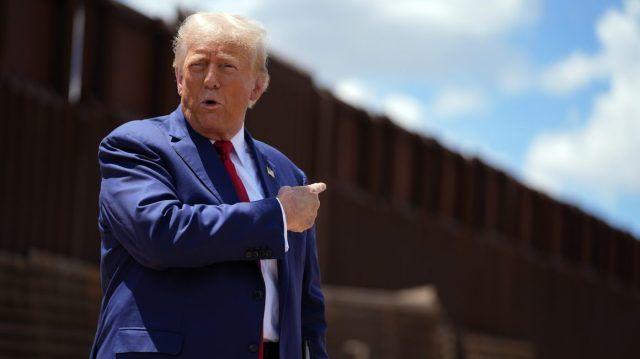
Source: The Hill
Bipartisan Concerns and Congressional Pushback
Democratic lawmakers, including Reps. Raja Krishnamoorthi and Gregory W. Meeks, have voiced "grave concern" over the administration's decision. In a letter to Commerce Secretary Howard Lutnick, they argued that using export controls as a "bargaining chip" in trade negotiations could compromise U.S. national and economic security
1
.A group of five Democratic senators, including Senate Minority Leader Chuck Schumer and Intelligence Committee Vice Chairman Mark R. Warner, called on Lutnick to "swiftly reverse course on these ill-advised actions"
2
. Even Republican Rep. John Moolenaar, chairman of the House Select Committee on China, has expressed reservations about the decision's potential impact on China's AI capabilities1
.Trade Negotiations and Rare Earth Magnets
The administration's reversal appears to be linked to ongoing trade negotiations with China. Treasury Secretary Scott Bessent described the resumption of H20 sales as "part of a mosaic," while Lutnick confirmed that the decision was connected to a deal involving rare earth magnets
1
. This revelation has intensified criticism that the administration is prioritizing trade deals over national security concerns.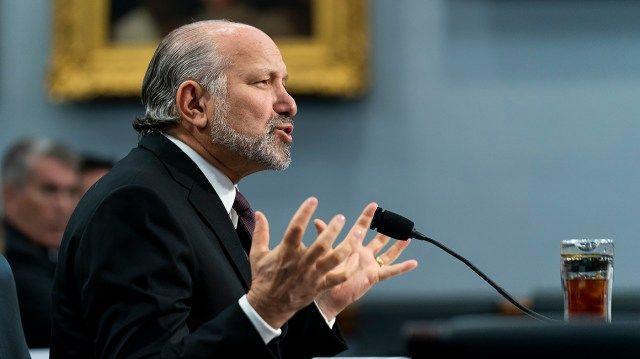
Source: The Hill
Impact on Export Control Credibility
Critics argue that the reversal undermines the credibility of U.S. export controls. Former National Security Council official Meghan Harris stated that the move had "stunned" both Republicans and Democrats working on export controls, potentially calling into question future export control actions
1
.Internal Administration Divide
The decision has reportedly exposed deep divisions within the Trump administration. Sources suggest that pro-business Silicon Valley voices, led by White House AI czar David Sacks, have gained influence over security hawks in shaping China policy
1
.Related Stories
Implications for U.S.-China AI Competition
The reversal comes shortly after the Trump administration unveiled its AI Action Plan, which emphasizes winning the AI race against China. Critics argue that allowing H20 chip sales to China could potentially accelerate Beijing's AI capabilities, contradicting the goals outlined in the action plan
2
.Broader Policy Concerns
The controversy extends beyond the H20 chip issue. After rescinding former President Biden's AI diffusion rule in May, the Trump administration has yet to introduce a replacement framework, leaving uncertainty in the semiconductor export landscape
2
.References
Summarized by
Navi
[1]
Related Stories
U.S. Legislator Challenges Trump Administration's Decision to Resume Nvidia H20 GPU Sales to China
19 Jul 2025•Policy and Regulation
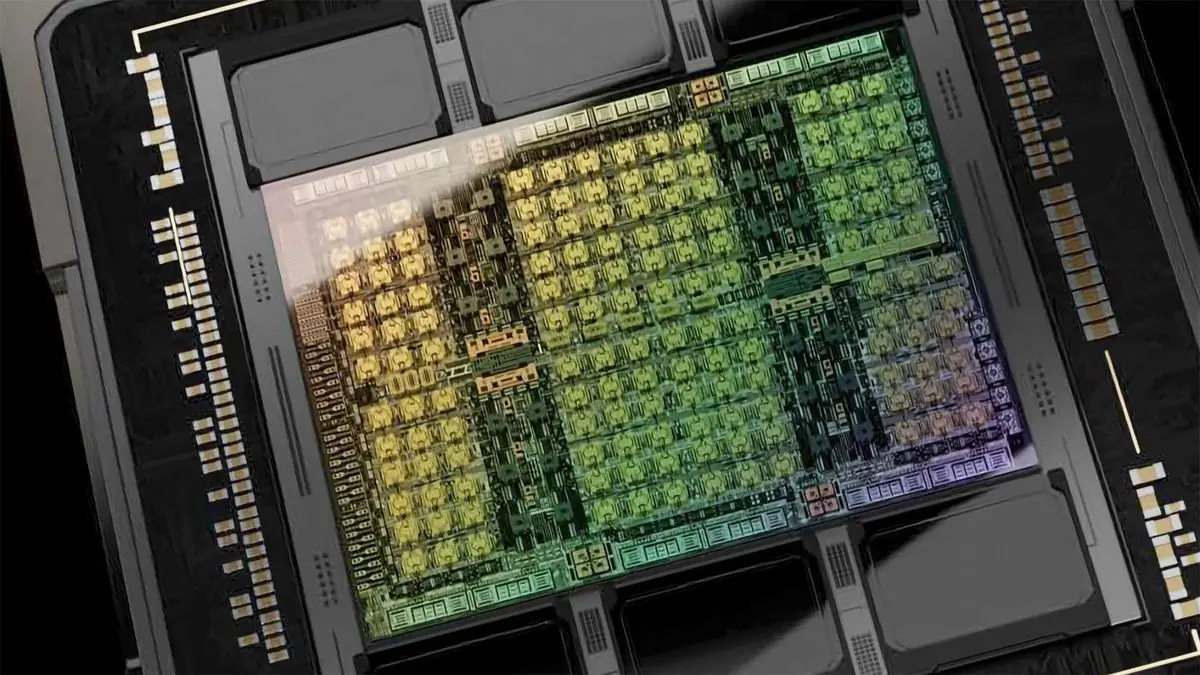
Senators Push SAFE Chips Act to Block Advanced AI Chips Sales to China for 30 Months
05 Dec 2025•Policy and Regulation
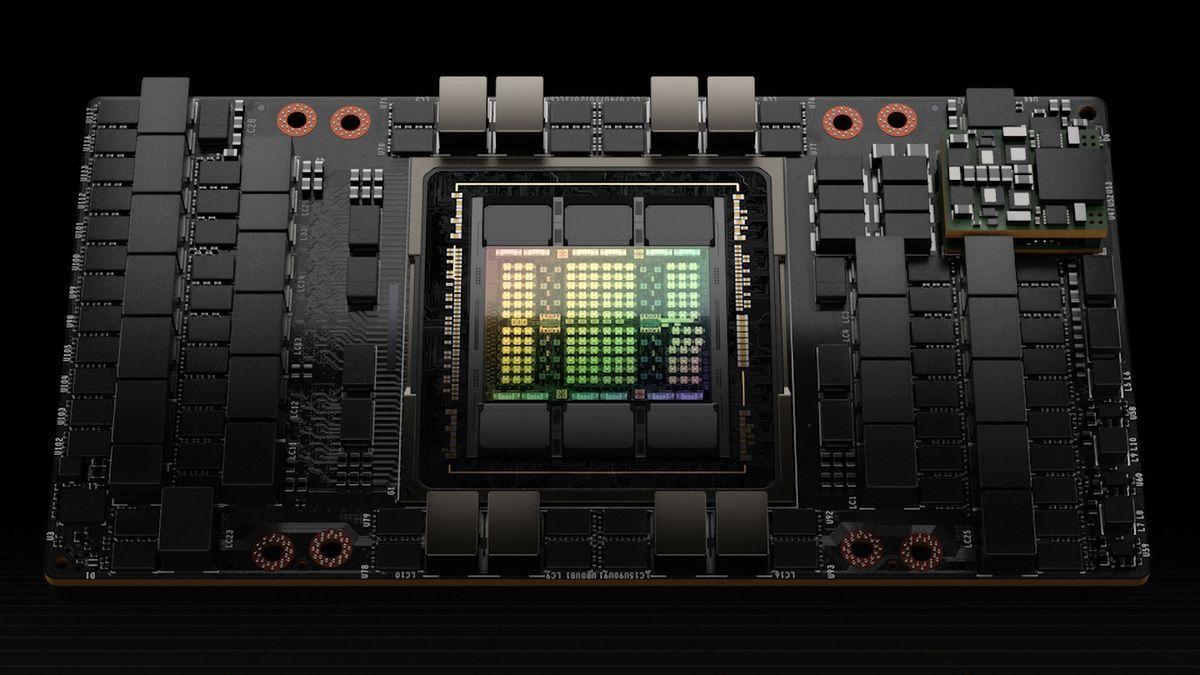
National Security Experts Urge Trump Administration to Reconsider Nvidia H20 Chip Exports to China
29 Jul 2025•Policy and Regulation
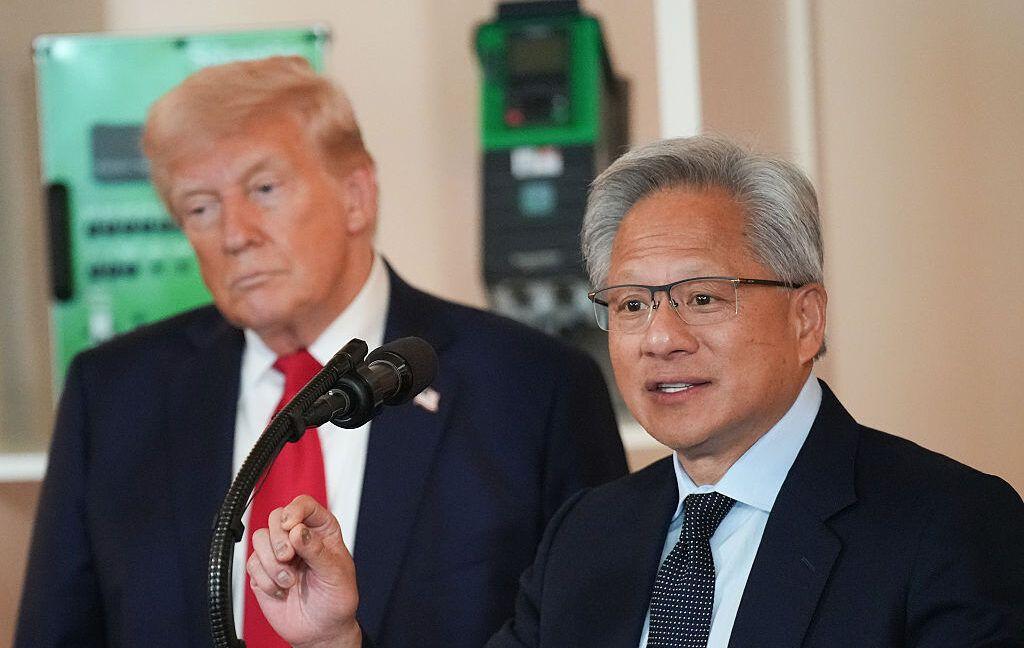
Recent Highlights
1
ByteDance Faces Hollywood Backlash After Seedance 2.0 Creates Unauthorized Celebrity Deepfakes
Technology

2
Microsoft AI chief predicts artificial intelligence will automate most white-collar jobs in 18 months
Business and Economy

3
Google reports state-sponsored hackers exploit Gemini AI across all stages of cyberattacks
Technology





